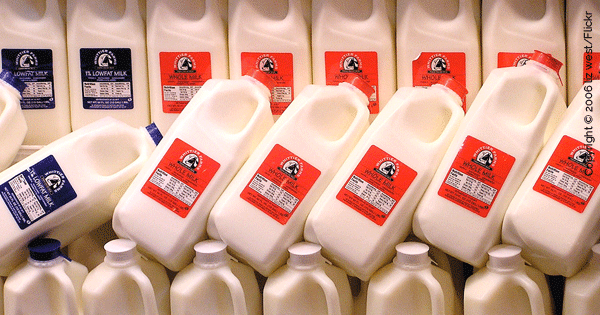Advertisement
For a long time, it was widely believed that a diet rich in milk products can build strong bones and reduce the risk of fractures for those at risk for age-related bone loss. It makes sense, as dairy products contain the highest concentration of calcium per serving.
However, that might not be completely true.
According to a new study in the British Medical Journal, "drinking large amounts of milk each day does not lower a person's risk of bone fractures and instead may be associated with a higher rate of death."
In order to absorb the calcium in milk, the body needs vitamin D (the two greatest sources of vitamin D come from direct sunlight as well as whole milk). Also, milk is also high in two types of sugar — lactose and galactose. Both have been proven to speed up the aging process in animals by increasing oxidative stress and chronic inflammation.
Researchers were working to see if the aging process happened in humans as well.
According to Yahoo! Health, "researchers analyzed data from 61,433 women (ages 39-74 years) and 45,339 men (ages 45-79) who completed questionnaires asking how often the participants consumed 96 common foods, including milk, yogurt, and cheese. The women were tracked for an average of 20 years, while the men were tracked, on average, for 11 years. The number of deaths and fractures in both groups were recorded."
"We indeed found higher oxidative stress and inflammation in women and men who consumed several glasses of milk per day compared with those who drank lower amounts," lead author Karl Michaëlsson told Yahoo! Health.
On top of that, researchers found no reduction in fracture risk with higher milk consumption, and actually discovered that women who drank more than three glasses of milk a day (average 22 ounces) had a higher risk of death than women who drank less than one glass of milk a day (average two ounces).
Michaëlsson was quick to point out that these findings only show an association between milk and an increased risk of death, and they do not prove a cause-effect relationship--this means that the study is not entirely conclusive and more research needs to be done. There very well could be a different cause-effect relationship separate from this association.
"It's too early to make specific recommendations based on our findings," he said. "This study should not be viewed in isolation but as one piece in the puzzle of evidence."
What do you think about this new study? Let us know what you think in the comments!
Copyright © 2006 liz west/Flickr




